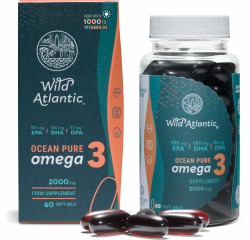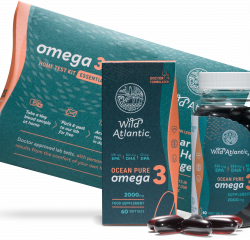Is It Good to Take Omega-3 Every Day?
Omega-3 fatty acids are essential nutrients that play a crucial role in maintaining various aspects of human health. These polyunsaturated fats are not produced by the body in sufficient quantities, making it necessary to obtain them through diet or supplements. Common sources of omega-3s include fish oil, flaxseeds, chia seeds, and walnuts. This article explores the benefits and potential considerations of taking omega-3 supplements daily.
The Benefits of Daily Omega-3 Intake
Omega-3 fatty acids are well-documented for their numerous health benefits. Regular intake can support cardiovascular health, cognitive function, and reduce inflammation. Here’s a detailed look at some key benefits:
| Health Benefit | Details |
|---|---|
| Cardiovascular Health | Omega-3s help lower triglyceride levels, reduce blood pressure, and decrease the risk of heart disease. |
| Cognitive Function | These fatty acids are vital for brain health, improving memory, and possibly reducing the risk of Alzheimer’s disease. |
| Anti-Inflammatory Properties | Omega-3s can reduce inflammation, which is beneficial for conditions like arthritis. |
| Eye Health | Regular intake may help protect against age-related macular degeneration and dry eye syndrome. |
| Mental Health | Omega-3s are linked to lower levels of depression and anxiety, as discussed in this article. |
Potential Risks and Considerations
While omega-3 supplements are generally safe for most people, it’s important to be aware of potential risks:| Consideration | Details |
|---|---|
| Bleeding Risk | High doses of omega-3s may increase bleeding risk in some individuals, particularly those on anticoagulant therapy. |
| Digestive Issues | Some people may experience digestive discomfort, including bloating, gas, and diarrhea. |
| Contaminants | Fish oil supplements can sometimes contain contaminants like mercury and PCBs. It’s important to choose high-quality products. |
Conclusion
Incorporating omega-3 supplements into your daily routine can offer numerous health benefits, particularly for heart and brain health. However, it’s important to choose high-quality supplements and be mindful of the recommended dosages. For more information on the importance of omega-3s and related topics, you can explore articles such as Benefits of Omega-3 for Kids and Teens and Why Omega-3s Are Crucial for Pregnant Moms. Disclaimer: This article is for informational purposes only and is not a substitute for professional medical advice.References
- American Heart Association. (2023). Dietary Guidelines for Americans.
- National Institutes of Health. (2022). Omega-3 Fatty Acids: Health Benefits and Recommended Intakes.
- Wild Atlantic Health. (2023). Depression, Anxiety, and the Link to Omega-3.





























